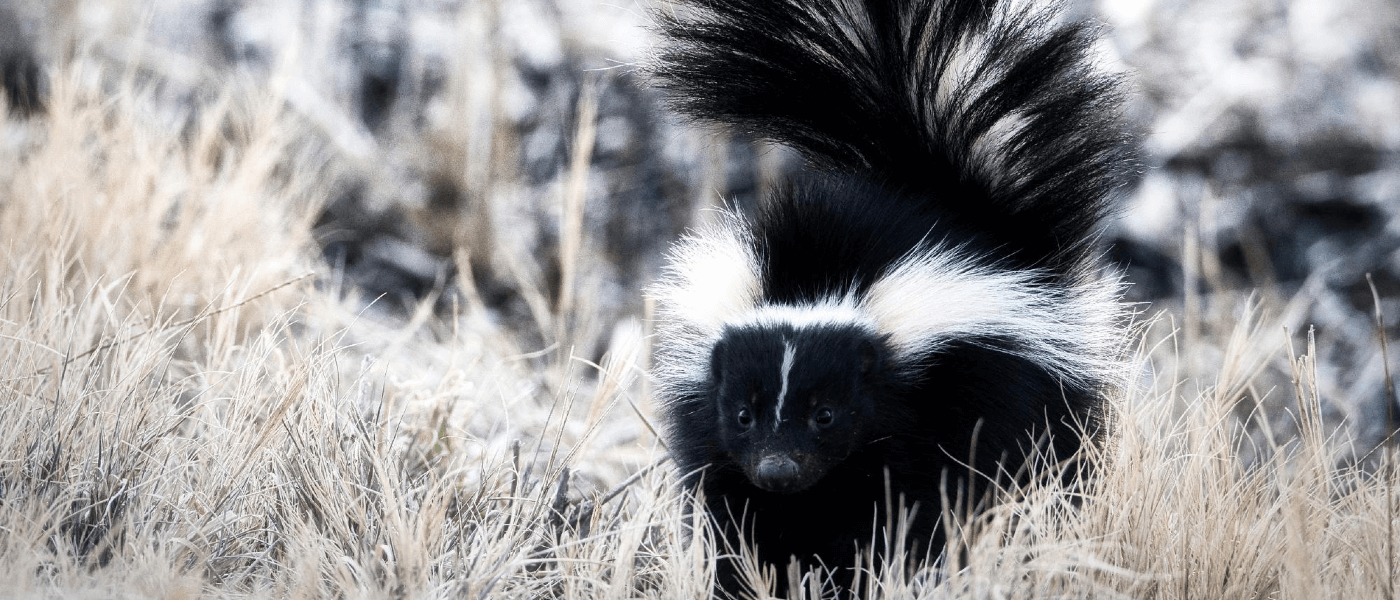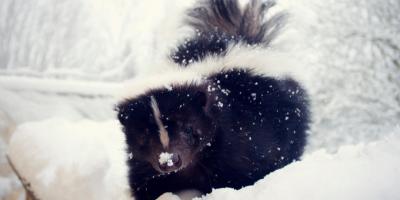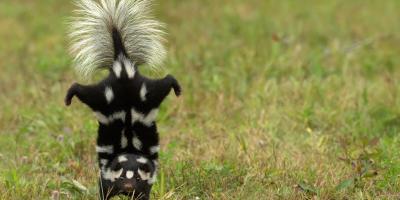Careful Ladies... Pepé le Pew is in Town

For some, Valentine’s Day means love is in the air. Detractors might agree there’s something in the air, alright, but compared to true love it stinks. Not to side with the spoilsports, but we have to agree -- something about Valentine’s Day does stink. Just not for the reason you might think.
Consider the skunk. Although, when you think of love and skunks, the legendary cartoon casanova known as Pepé Le Pew may come to mind, we’re actually talking about the proliferation of real, live skunks, specifically around this time of year.
Skunks Slow Down, but Don’t Hibernate
Come wintertime, skunks may lose a bit of the spring in their step, but unlike some mammals such as bears and groundhogs, skunks don’t hibernate. They do, however, make themselves scarce and hunker down to wait out the season of snow and ice.
Once colder temperatures set in, a skunk will block off its den with leaves and grass to help keep the cold air out. Once set up, skunks will go dormant, but they don't enter into a state of full hibernation. They’ll stay hunkered down until the weather starts to change, usually around the same time as a familiar holiday...
It’s Mating Season for Them, Too
Perhaps it’s just coincidence, but skunk mating season happens to begin smack dab in the middle of February, just about when the 14th of the month rolls around.
Spoiler alert -- skunks themselves aren’t particularly enamored with their own smell either.
When a male skunk approaches a female with amorous intentions that she’s none too keen on accepting, she communicates her disapproval by spraying the male. But don’t worry -- if you happen to be the one getting “rejected,” skunks give plenty of warning signs first.
The Calm Before the Stink
Believe it or not, skunks are actually quite passive in nature and not particularly trigger-happy when it comes to unleashing the stench. Before a skunk will spray, it’ll typically hiss, raise its tail and stamp its feet as a warning first. If the intruding bear, deer, squirrel or human doesn’t heed the skunk’s signals, it’ll eventually blast the offending creature with its offensive odor.
That’s why you should slowly and quietly back up if you ever see a skunk -- especially if it starts warning you it’s about to spray. The last warning you’ll get is when the skunk spins around and points it’s stink-weapon right at you (although they can also fire their stink-spray at you while facing you).
It Stinks to Get Sprayed
Contrary to popular wisdom, tomato juice will not strip the smell of skunk spray off your body. The only way to do that is to oxidize the oil causing the stink. Whether it was a human or pet that got caught in the crossfire, you’ll need to mix up a scrubbing paste using 1 quart of 3% hydrogen peroxide solution, 1/4 cup of baking soda and 1 teaspoon of dish soap. It takes that -- plus a little patience -- to get the smell out.
Skunks Are Usually Just Passing Through
If you do see a skunk on your property, most of the time the best course of action is to just let it be. Most skunks are just passing through. If you do happen to have one or more skunks settle in and cause a disturbance, there are safe and humane removal options available. Don’t ever try to handle skunks yourself -- trust a wildlife removal expert instead.
Speaking of...
Need a skunk removed from your property? Contact us today for a free wildlife removal quote.



